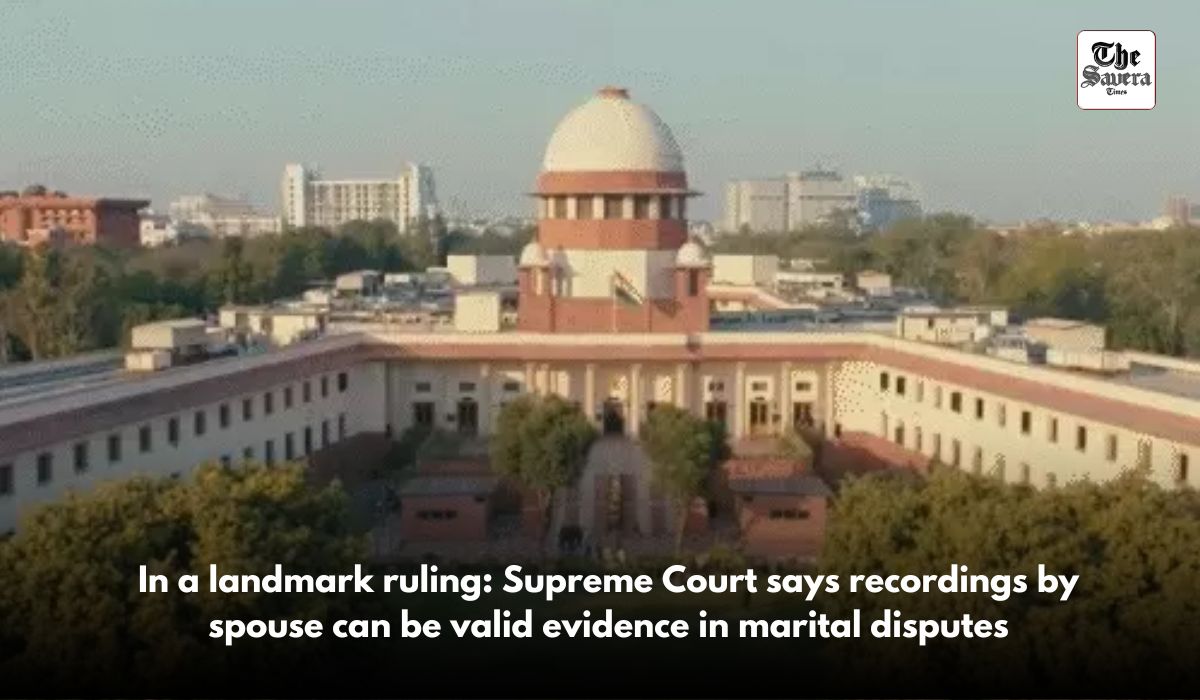
Chandigarh, July 14: The Supreme Court on Monday gave an important verdict overturning the decision of the Punjab and Haryana High Court. It has been said that the telephonic conversation of the wife secretly recorded by the husband can be accepted as valid evidence in the family court. The court overturned the decision of the Punjab and Haryana High Court in this case, which said that such recordings are a “clear violation of the right to privacy” and cannot be considered as evidence.
A bench of Justices BV Nagarathna and Satish Chandra Sharma said that even secret recordings made in marital relations are admissible if it relates to a marital dispute, such as divorce or allegations of cruelty.
Observations of the Supreme Court:
Case related to Bathinda family court
This case is related to divorce proceedings in the family court of Bathinda, Punjab where the husband had presented the telephone recording of the wife in the form of a CD to the court to prove mental cruelty. The wife had challenged this in the High Court. Justice Lisa Gill of the High Court had refused to accept the CD as evidence, considering it a violation of privacy and dismissed it.
Reasoning of the High Court
Supreme Court decision
The court also said that if the marriage has reached a stage where the husband and wife are spying on each other, then it is already a sign of breakdown of the relationship. In such a situation, saying that the recording will affect domestic peace is not a sustainable argument.
Argument of the petitioner
Petitioner’s counsel Ankit Swaroop argued that the right to privacy is not absolute and must be balanced with other legal rights. This recording is a way to prove the allegation of mental cruelty, as the absence of witnesses or written evidence is common in such cases.
Sections 14 and 20 of the Family Courts Act, 1984 give flexibility to the courts to admit such evidence which may reveal the truth.
